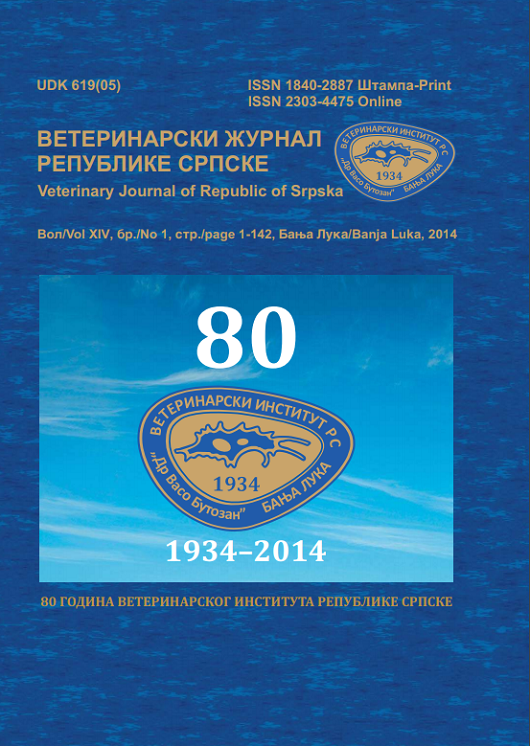IN VITRO ANTIBACTERIAL ACTIVITY OF ROYAL GELLY AGAINST PATHOGEN ESCHERICHIA COLI
DOI:
https://doi.org/10.7251/VETJ1401002DAbstract
In the study was used a pathogen strain of E. coli, caused septicemia for ducks,
resistant for different antibacterial agents: Amoxicillin, Lincospectin, Chloramphenicol,
Doxycyclin, Enrofl oxacin, Sulfonamides and Trimetoprim. Bacterial suspension of E.
coli icontaminated each from test solutions in TSB of royal jelly (n=6), mixes of royal
jelly and rape honey, and independent used rape honey (10–45% v/v). Have in mind
exactly counts of colonies before and after incubation from each of test substances
was calculated the percent of reduction up to 30 min, and after incubation (24 h
and 48 h). In almost all concentrations of royal jelly (10–45 v/v), were found total
inhibition effect to E. coli. Mixes from royal jelly and rape honey (1:100) possessed
a higher antibacterial effect, compared with independent use of rape honey. Up to
45% (v/v), rape honey does not cause total antibacterial reduction. Royal jelly and
mixes from royal jelly and rape honey have potential as alternative therapeutics
agents against resistant for antibiotics pathogen strains of E. coli.

